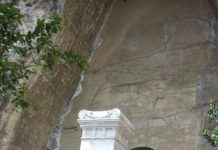Alexandre Dumas in Italia. Il giornalismo letterario al servizio della libertà. Al Suor Orsola un focus speciale sull’esperienza de “L’Indipendente”. La sua impresa giornalistica sarà al centro che l’Ateneo napoletano realizzerà entro il 2024 insieme con l’Università francese di Caen grazie al finanziamento dell’Università Italo-Francese di Torino nell’ambito del bando “Due Cattedre Italo-Francesi”.
Un progetto di studio e ricerca che prevede innanzitutto la mobilità dei docenti (visiting professor tra le due Università) e la mobilità degli studenti per soggiorni di ricerca ed anche occasioni di incontri e riflessioni come la giornata di studi si svolgerà venerdì 19 maggio all’Università Suor Orsola Benincasa di Napoli e sarà dedicata al tema “Dumas al crocevia tra storia, letteratura e giornalismo”.
Il convegno, organizzato anche con l’Istituto Francese di Napoli, si aprirà alle 9.45 nella Biblioteca Pagliara del Suor Orsola con gli interventi del rettore, Lucio d’Alessandro e del console generale di Francia a Napoli, Madame Lise Moutoumalaya (programma completo degli interventi su www.unisob.na.it/eventi).
Nella sessione del mattino spazio alle riflessioni sul contesto storico- letterario negli anni dell’Unità d’Italia. Nel pomeriggio le riflessioni sul giornalismo letterario di Dumas, sul giornale quale vetrina della sua opera narrativa e sull’opera narrativa al servizio della vendita del giornale.
Spiega Alvio Patierno, docente di Letteratura francese al Suor Orsola: «È ancora oggi un importante caso di studio “L’Indipendente” fondato a Napoli nel 1860 da Dumas a sostegno della spedizione garibaldina e dell’Unità d’Italia. Dell’Indipendente di Dumas (1860-1876) ci sono solo due copie cartacee nelle Biblioteche nazionali di Napoli e di Roma, ma molti articoli si trovano anche online grazie ai lavori di digitalizzazione da parte della studiosa Sarah Mombert. Il giornale era nato con la volontà di Garibaldi e di Dumas di creare uno strumento al servizio dell’impegno per la libertà».
E ancora sottolinea la modernità di quell’esperimento: «La struttura di quel giornale politico e letterario è ancora oggi attuale: scritto in francese e tradotto di notte in italiano da vari collaboratori, tra cui il giovane Eugenio Torelli (futuro direttore del Corriere della Sera), l’Indipendente di Dumas offriva (unico caso in assoluto) due romanzi d’appendice di cui Dumas era maestro, notizie internazionali, rubriche varie e una politica di marketing e di pubblicità molto forte (vendita di gadget associati al giornale, supplementi e brochure, merchandising). Grande spazio era riservato alle arti: teatro, musica, pittura. Un caso esemplare da studiare ancora oggi per allungare il futuro ai giornali cartacei».
Per saperne di più
www.unisob.na.it/eventi
Alexandre Dumas in Italy: focus on his journal The Independent between politics and literature. Project with the French University of Caen
Alexandre Dumas in Italy. Literary journalism at the service of freedom. At Suor Orsola a special focus on the experience of “The Independent.” His journalistic enterprise will be the focus that the Neapolitan Athenaeum will carry out by 2024 together with the French University of Caen thanks to funding from the Italian-French University of Turin under the call for “Two Italian-French Chairs.”
It is a study and research project that includes first of all the mobility of professors (visiting professors between the two universities) and the mobility of students for research stays and also opportunities for meetings and reflections such as the study day that will take place on Friday, May 19 at the Suor Orsola Benincasa University in Naples and will be dedicated to the theme “Dumas at the crossroads of history, literature and journalism.”
The conference, also organized with the French Institute of Naples, will open at 9:45 a.m. in the Suor Orsola’s Pagliara Library with speeches by the rector, Lucio d’Alessandro, and the consul general of France in Naples, Madame Lise Moutoumalaya.
In the morning session space will be given to reflections on the historical and literary context in the years of Italian Unification. In the afternoon reflections on Dumas’ literary journalism, on the newspaper as a showcase of his narrative work and on the narrative work in the service of selling the newspaper.
Explains Alvio Patierno, professor of French Literature at Suor Orsola: “It is still an important case study “L’Indipendente” founded in Naples in 1860 by Dumas in support of Garibaldi’s expedition and the Unification of Italy. Of Dumas’ The Independent (1860-1876) there are only two paper copies in the National Libraries of Naples and Rome, but many articles can also be found online thanks to digitization work by scholar Sarah Mombert. The newspaper was born with the wish of Garibaldi and Dumas to create an instrument to serve the commitment to freedom.”
And Patierno stresses the modernity of that experiment: “The structure of that political and literary newspaper is still relevant today: written in French and translated at night into Italian by various contributors, including the young Eugenio Torelli (future director of the Corriere della Sera), Dumas’s Independent offered (the only case ever) two appendix novels of whose works Dumas was a master, international reports, various columns and a very strong marketing and advertising policy (sale of gadgets associated with the newspaper, supplements and brochures, merchandising). Great space was reserved to the arts: theater, music, painting. An exemplary case to be studied even today to extend the future for printed newspapers.”


![Alexandre Dumas[96823]](https://www.ilmondodisuk.com/wp-content/uploads/2023/05/Alexandre-Dumas96823-696x362.png)







